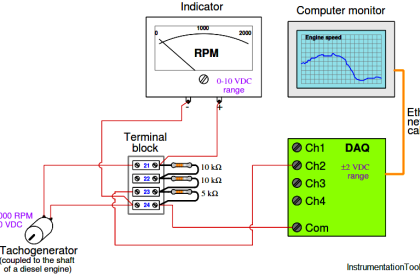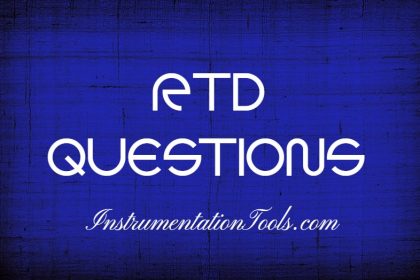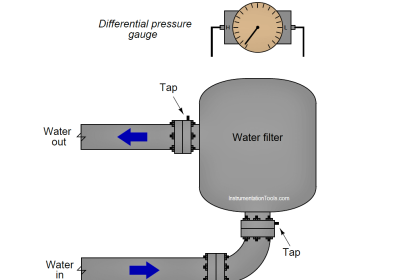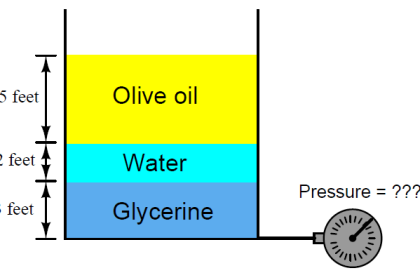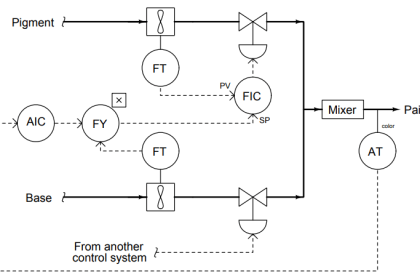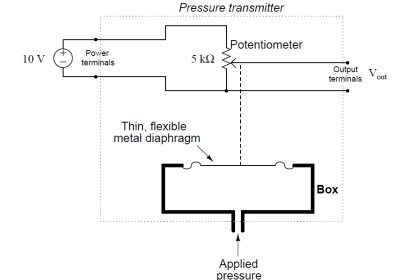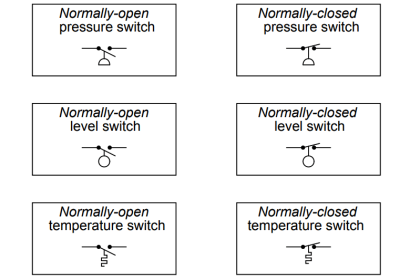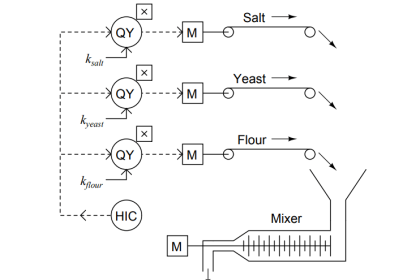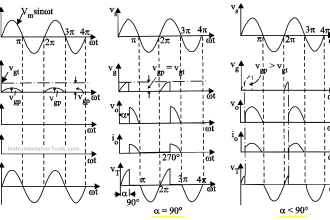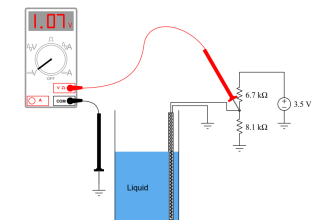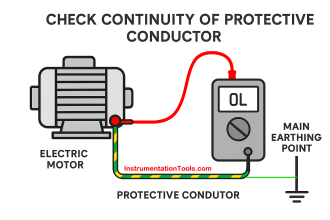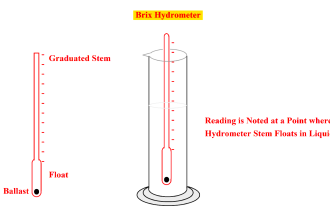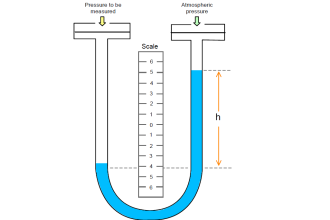A device called a manometer is a very simple and yet very precise pressure measuring instrument. It works on the principle of a differential pressure displacing a vertical liquid column.
The distance between the tops of the two liquid columns is proportional to the difference in pressure applied to tops of the two vertical tubes. This is where we get pressure units of “inches/centimeters of water column” and “inches/centimeters/millimeters of mercury” – from the operation of a manometer:
Accuracy of a Manometer
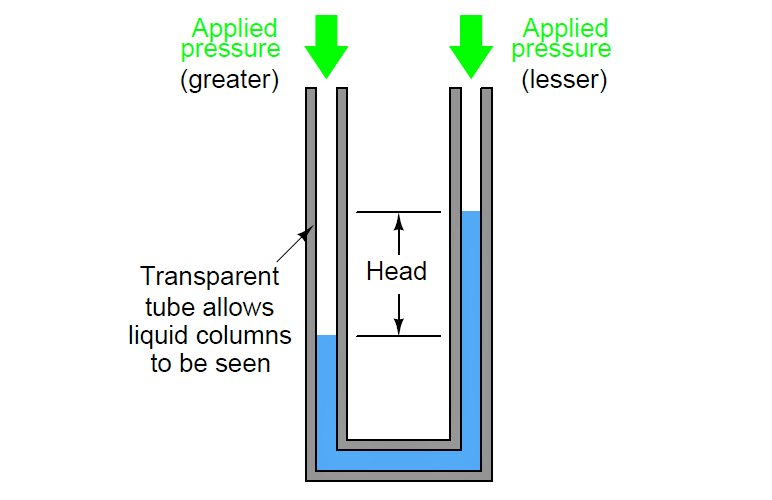
Explain how this instrument may serve as a standard for pressure measurement, just as a deadweight tester may serve as a standard for pressure generation. To phrase this question in the negative, what would have to change in order to affect the pressure measurement accuracy of a manometer?
Answer:
The accuracy of a manometer is fixed by two fundamental variables, both of which are quite constant:
- The density (mass per unit volume) of the manometer liquid
- The gravity of Earth
So long as these two variables do not change, neither will the accuracy of the manometer.
Read Next:
- What is Dead Weight Tester?
- Transmitter Calibration
- Calibration Interview Questions
- Pressure Gauges Adjustment
- Well Manometer Principle
Credits: Tony R. Kuphaldt
